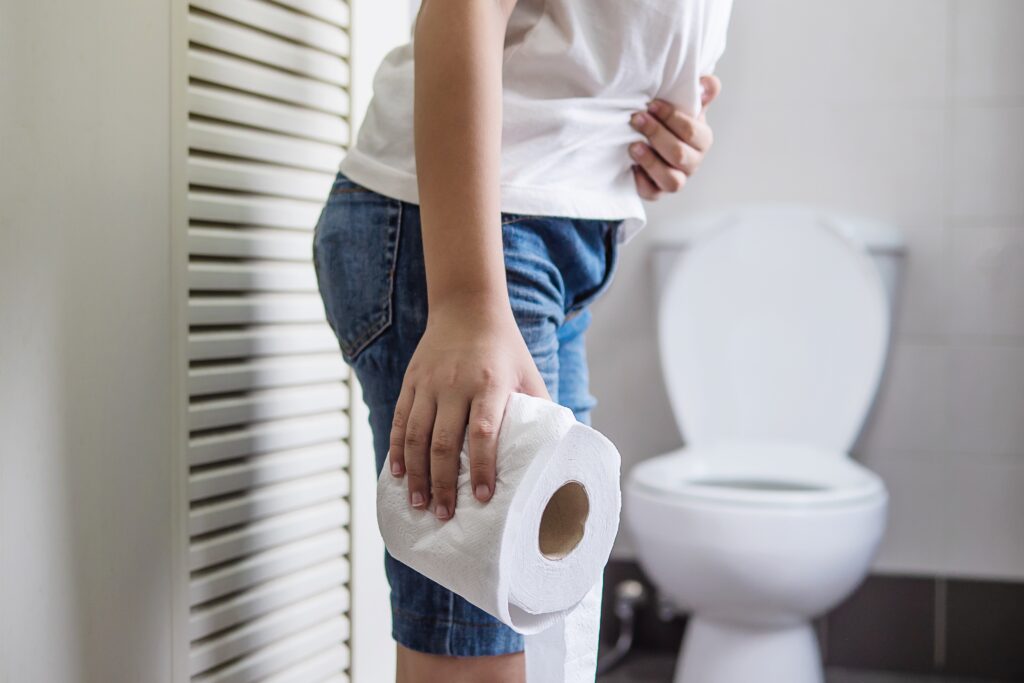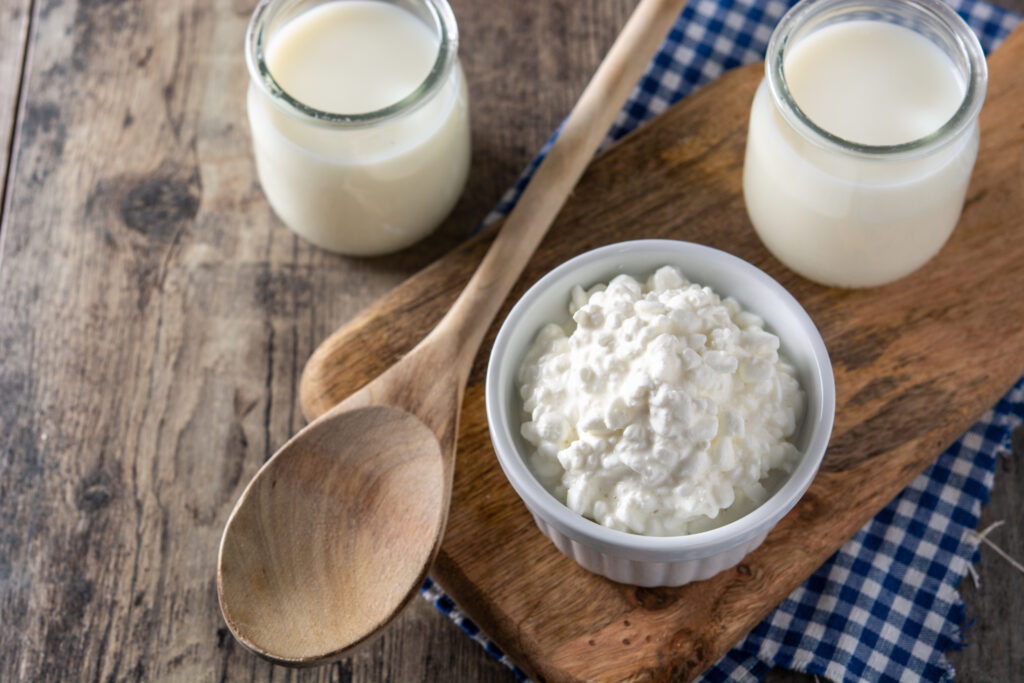Digestion can be improved by adopting some lifestyle changes and practicing some home remedies. Gastrointestinal issues, stress, an imbalanced diet, and contaminated food cause poor digestion. Minor digestive issues are common and usually linked with imbalanced dietary habits. Your poor digestion can cause bowel changes, abdominal cramps, and changes in appetite. Simple home remedies can ease such symptoms and boost your digestive health.
In this blog article, the main causes of poor digestion will be discussed along with the ways to improve digestion and clean the stomach.
Causes of Poor Digestion
Possible causes of poor digestion are: Digestive Disorders: Gastrointestinal issues that damage the digestive tract may be the major cause of poor digestion. Common digestive disorders include:
Digestive Disorders: Gastrointestinal issues that damage the digestive tract may be the major cause of poor digestion. Common digestive disorders include:
- Constipation.
- Bloating.
- Dyspepsia.
- Heartburn.
Irritable Bowel Syndrome : Irritable bowel syndrome is a common digestive disorder. Usually, 15 to 20% of the population of the country is dealing with IBS symptoms. IBS causes changes in your bowel movements in response to stressors. These stressors include bacterial infections, mental health concerns, and difficult experiences in early life.
Inflammatory Bowel Disease: Inflammatory bowel disease is recognized commonly in its two forms including Ulcerative colitis and Crohn’s disease.
The former happens as a result of abnormal reactions of your immune system and causes ulcers or inflammation in the inner lining of the large intestine. According to a 2020 study, around seven hundred thousand to nine hundred thousand people in the country have Ulcerative colitis.
Another form of IBS is Crohn’s disease. It causes irritation and inflammation throughout the digestive tract. Nearly six hundred thousand people in the country are suffering from the disease.
More Common Causes of Poor Digestion: Food Intolerance: having difficulty digesting specific foods causes food intolerance and as a result, you may suffer from bloating or diarrhea.

Processed Foods: Hot dogs and frozen food items are your favorite edibles but these foods are highly processed and affect your digestion process negatively. These foods elevate your blood sugar level and increase inflammation. These actors cause poor digestion.
Stress: Excess anxiety or stress causes inflammation and diarrhea that results in poor digestion. Stress can impact your gut health and damage your digestive tract. It also increases the risk of getting IBS and IBD and can worsen the symptoms.
Medications: Medications such as antibiotics can increase digestive issues. So use them carefully after discussing with your healthcare provider. If you will stop taking these medications the related digestive issues can be resolved. In addition, pain-relieving drugs also have side effects in your gut. Opioid medications that affect your digestion include:
- Fentanyl.
- Tapentadol.
- Morphine.
- Tramadol.
- Codeine.
Diabetes: Diabetes causes high blood sugar levels in a person which may lead to gastroparesis that impacts digestion negatively.
Poor Hydration: Insufficient intake of water can lead to digestive issues like diarrhea or constipation. Stools get hazardous due to lack of fluids and reduce the number of bowel movements.
To find out the exact cause of poor digestion, you should consult a medical professional.
Home Remedies to Boost Your Digestive Health
Consulting a doctor is a key step if you’re experiencing digestive problems day to day. However, for mild digestive issues, home remedies can be the best option. Incorporate the following into your daily life to boost your digestive health.
Relaxation
Sustained stress, an exam, or a big exciting event can affect the connection between your brain and the gut caring for ongoing problems. Physical and mental health have a strong link. Therefore reducing stress can have a positive impact on your physical and mental health.. Three recommended key ways to manage stress include:
- Regular exercise
- Enough good quality sleep.
- Good support network for helping you.
You may have temptations for rushing to heavy meals on a busy day but it can cause stomach discomfort and indigestion or poor digestion. Therefore, taking rest before and after taking a meal is suggested to boost your digestive health.
Taking Mint Tea

A common home remedy to ease indigestion or poor digestion is taking mint tea. A simple mint tea can give you relief from bloating, indigestion and diarrhea. You can prepare mint tea on your own. You need some leaves of fresh peppermint or spearmint. Add these leaves to a cup of boiling water then let it cool slightly. Now pour water on the leaves and steep for a while. Adding a small amount of honey or slices of lemon can enhance the flavor of the tea and play a crucial role to boost your digestive health.
Research has proved that peppermint oil of mint leaves can relieve IBS symptoms including diarrhea and stomach pain. However, more work is going on to fully understand the science behind this.
Workout
Lighter workouts can help support quick and smooth digestion. Staying active and upright helps move food through the digestive tract. Slow walking on a road or your lawn can reduce feelings of fullness and ease bloating. Gentle exercises increase your blood flow in your muscles which helps food to move easily through your digestive system and can boost your digestive health.
Cut Down Fat
Fatty foods cause heartburn. Such foods include fried foods, chips, and burgers. The digestive system finds it difficult to digest them properly and as a result, you suffer from stomach pain. Cutting back on greasy fried foods may ease your stomach’s workload. Eating more lean meat, and fish, drinking skimmed or semi-skimmed milk, and eating grilled rather than fried foods are some healthy steps that can ensure your gut health and boost your digestive health.
Go Easy on Spice

Spicy foods are liked by many people and others don’t like them at all. If you are a spice lover and spices do not bother your digestive system, you are a lucky one but if spices cause heartburn you may suffer from stomach aches frequently. People who are offended with spices, they not only cut off chilies but they also avoid mild but flavorful foods containing garlic or onions because these natural spices also cause digestive issues in their digestive system. You should go to eBay on spicy foods in the future if they give you heartburn, diarrhea, or stomach pain. If you already have digestive issues like constipation, heartburn, or irritable bowel disease, avoid spicy foods completely. this may boost your digestive health.
Gas Reduction
Swallowing air during eating or drinking can cause gas in your digestive tract, especially in your stomach and intestines. Gas is also produced during the digestion and assimilation of food. Release of this gas can ease you but trapped gas can cause difficulty in digestion by creating bloating and discomfort in your stomach.
The lower amount of gas in your body doesn’t tease you but a higher amount of gas is unhealthy. It can be caused by performing such activities that tend you to swallow more air. Such activities may be:
- Eating quickly without chewing food.
- Wearing misfit dentures.
- Using carbonated drinks.
- Chewing gums.
In addition, some foods also create more gas, then go through your digestive tract, including:
- Yogurt.
- Kidney beans.
- Broccoli.
- Apples.
- Onions.
To reduce stomach discomfort or bloating, you can rub your belly gently. This may help boost your digestive health.
Use Fermented Foods
Bacteria along with other microorganisms are beneficial for your gut health because they break the food into digestible particles and preserve the food by fermentation procedure.
- Some types of bacteria are naturally found in your gut and help digest food but some bacteria are harmful and cause problems in the digestion process. Their abundance can harm your physical health. Fermented food contains healthy bacteria that help maintain your digestive health. Some examples of fermented foods are:
- Miso.
- Kefir.
- Sourdough bread.
- Sauerkraut.
- Probiotic yogurt.

Fermented foods are good for your gut health. Therefore, you are suggested to incorporate fermented foods into your diet.
Incorporate Fiber into Your Diet
Fibers are beneficial for your digestive and overall health. These can lower cholesterol levels in your blood and reduce the risks of heart disease. It also helps regulate bowel movements and support your digestion process.
According to a 2021 study, as an average adult, you should add a minimum of 40 grams of fiber to your daily diet. Add the following for fiber:
- Dried fruits.
- Beans.
- Nuts and seeds.
- Whole grains.
- Fresh fruits and vegetables.
Drinking plenty of liquids can also ensure water absorption in your body so that your food may easily move through your digestive tract.
Follow a Food Diary
A Food diary will help you to note the foods that trigger your digestive issues. Although digestive problems vary from person to person, your food diary may help you keep a record of culprits that enhance the risks of getting digestive issues.
You have to take notes after drinking and eating. Then highlight when you have felt the problem. This is the way to cut out potentially problematic foods and drinks from your diet to see whether you feel better or not. Before making any significant change in your diet, talk to a nutritionist. Your food diary may help your healthcare provider better understand the situation so they can offer you more suitable advice.
Avoid Triggering Foods
Different people react differently to the same foods. But some foods and drinks cause problems with digestion for all people. You should identify those triggers and avoid them. These triggers include:
- Caffeinated drinks.
- Alcoholic drinks.
- Fructose contains sweeteners.
- Vinegar and other acidic foods.
- Fried foods.
- Spicy foods.
- Processed foods.
Limited intake of such foods can boost your digestive health. You can also add fast foods to this list of triggering foods because these ready-made meals are higher in salt, saturated fats, and sugar. Digestion of these food items is a harder task for your digestive system and causes gas and constipation.
How to Clean Your Stomach?
Cleaning the stomach can save you from various digestive issues. You can use many dietary methods to reduce digestive issues by cleaning your stomach. Let’s have a look at the methods discussed in this article!
Your Diets
Taking a blanched diet is one of the most promising methods to promote your gut health. Eating unhealthy foods can worsen digestive issues. You can follow a diet plan that addresses your digestive health. People nowadays are following the Mediterranean Diet, Paleo Diet, DASH Diet, and many more options to manage their digestive disorders like IBD or IBS. These diet plans emphasize healthy fats and carbs with fresh fruits and vegetables.
Teas and Supplements
Teas prepared with natural ingredients or extracts of natural herbs and spices work as good supplements for your digestive system. They help you cleanse your digestive tract. Ginger is a well-known digestive supplement that promotes digestive health in every condition or every form. Research studies show that ginger is a natural ingredient that reduces inflammation and nausea. You can prevent the risks of getting ulcers and tumors by consuming ginger regularly.
Therefore, in times of digestive discomfort, you must try adding ginger to your daily diet plan. Fresh ginger juice with honey and lemon is the best remedy to ease your stomach bloating and reduce inflammation. You can also use ginger in your green smoothies such as chamomile tea.
This tea is a well-known antioxidant and helps reduce bloating. Chamomile tea with ginger and honey helps naturally cleanse your stomach and boost your digestive health. Before using any supplement or herbal tea, you must consult your doctor or a nutritionist. Because they will ensure that these new supplements or teas are the right choice for you.
When to Seek Medical Assistance?
Ongoing or severe digestive symptoms are a sign of underlying medical issues. These may include:
- IBS or IBD.
- Celiac disease.
- Acid reflux.
- Food intolerance.
 If you are experiencing symptoms associated with such conditions, you should promptly consult your doctor. Worsen vomiting, diarrhea, and bloating are signs of serious digestive disorders.
If you are experiencing symptoms associated with such conditions, you should promptly consult your doctor. Worsen vomiting, diarrhea, and bloating are signs of serious digestive disorders.
Conclusion
Digestive conditions and stress cause digestive problems that cause hazards to your overall health. Mild digestive issues can be treated at home through supplements or natural ingredients or by removing certain foods. Exercise, home remedies and balanced diet are effective ways to boost your digestive health. However, worsening or ongoing symptoms cause alarming situations and such conditions require immediate medical attention.
If someone experiences unexpected digestion issues, they should instantly consult with a doctor to receive a diagnosis and prompt treatment for the symptoms.







